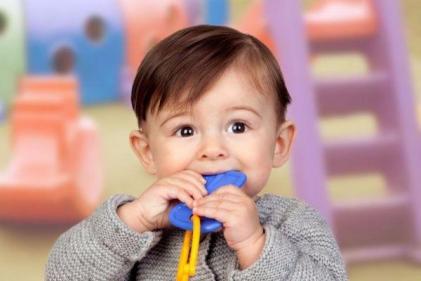Your Child’s Development
Your 28 month old is getting really good at being able to control his movements now, but he still has a hard time trying to control his emotions. Frustration still comes on pretty easy and is the cause of most tantrums. You may also have a toddler who is prone to shoving, throwing things, yelling, or even more violent types of behaviour such as biting or banging his head.
If your child tends to bang his head when he is upset, don’t get too worried. Though there are some instances where the behaviour is caused by a medical or psychological problem, most times, the act of head banging is related to temper tantrums. It’s temporary and your child will outgrow it, but until such time, this behaviour can certainly be unsettling. A toddler may bang his head as a reaction to frustration, anger, or just to get attention. Children learn early that this behaviour gets a reaction from parents and caregivers. Unfortunately, when the child gets your attention by banging his head, he may continue the behaviour.
There are several ways to help your child overcome head banging:
- Try to ignore it. Since attention is the desired outcome, ignoring the head banging may make your child realise it is not working. Of course, you can only ignore it if your child is not hurting himself.
- Pay attention to proper behaviour. Give your child attention when he behaves properly. You might even try a little reward, but make sure you discuss why he is getting a reward now as opposed to when he bangs his head.
- Do not overreact. Staying calm and reacting the same way each time will tell your child that you are not going to give in to his behaviour.
- Stop frustration before it starts. Check your child’s toys for anything that could be a source of frustration. Toys that are meant for older children are often the cause of frustration.
If your child is a biter he is probably doing it because he is frustrated, angry, or just curious. A curious child may only bite once, just to see what happens. However, a child who bites out of frustration or anger may continue to bite until a parent intervenes. Here are few suggestions to help your child overcome his biting habit:
- Never bite your child back. Although it is tempting to ‘show him how it feels’, you should never confuse your child this way. Telling him that something is wrong and seeing you do it is a confusing lesson for a toddler to understand.
- Always take biting seriously. Even if the bite is just a nibble and is kind of funny, don’t giggle. Let your child know that the behaviour is not acceptable and he will be in trouble if he does it again.
- Don’t play bite. When you play with your child, resist the urge to give him playful bites on his toes or fingers. Again, this sends a very confusing message to a toddler.









